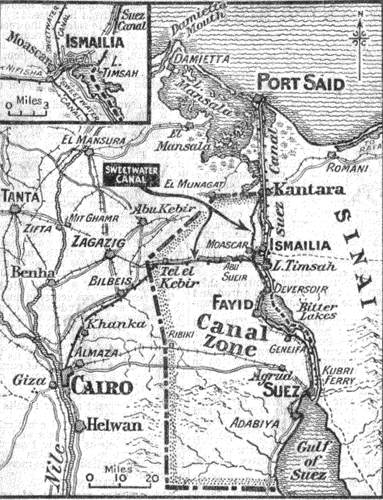IN
THE TWO MONTHS since the start of outbreaks of violence against British
Forces in Egypt, Valettas of the Middle East Air Force Transport Wing,
based at RAF Station Fayid, Hastings of Transport Command operating
under the control of the Transport Wing, and U.K.-based Transport Command,
Hastings have flown 1,099,045 miles without mishap in carrying Army
and RAF reinforcements and supplies from England, Cyprus, North Africa
and Jordan to the Canal Zone and evacuating families. In addition to
many thousands of troops, 380 vehicles and 282,416 lb of military equipment
and supplies were carried. Altogether, 370 round trip sorties have been
made in addition to the normal scheduled air services. Nearly 600 RAF
and several hundred Army families have been airlifted to the United
Kingdom.
In the task of keeping
the aircraft flying, perhaps the greatest burden has fallen on station
and squadron servicing teams. In November, the Transport Wing exceeded
their normal task by over 50 per cent. This was no small measure due
to the hard work by the maintenance and servicing crews. Airmen, in
addition to the regular shifts, almost invariably worked during off-duty
hours. There was excellent co-operation between the Wing and RAF Transport
Command, some of whose Hastings were for a period placed under the Wing
and serviced by special crews flown from England.
During the peak period
of the airlift – the biggest since that which supported Western
Berlin during the Russian blockade – Fayid was a hive of activity
by day and night. All ranks worked very long hours, and what sleep they
did snatch was under uncomfortable circumstances, as the accommodation
of families waiting for evacuation strained the station’s resources.
The Air Movements
section in charge of passengers and freight worked at high speed despite
the loss of 48 Egyptian civilian workers. Aircraft movements were handled
at the rate of several thousand a month, far above the normal tempo.
Domestic affairs
on the station were made difficult by the departure of 80 per cent of
the native labour and an influx of 50 per cent more airmen and many
more officers and aircrew, in addition to families accommodated and
in transit. Big calls on manpower were necessary to guard the station
against terrorist activities, despite reinforcement by a squadron of
the RAF Regiment, but the security measures have been successful and
no damage or casualties have been caused at Fayid.
The Middle East transport
Wing is commanded by Air Commodore G. P. Chamberlain, and the Station
Commander is Group Captain, D.M.T. Macdonald.
THE
AEROPLANE
JANUARY
4, 1952

